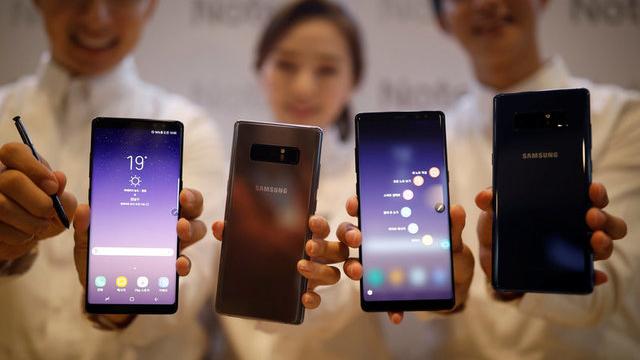AT&T, Verizon and others still working on auto-enrolling customers in call-blocking tech
Top telecommunications firms have yet to take advantage of a move by the Federal Communications Commission to allow wireless providers to automatically enroll customers in call-blocking applications.
Earlier this week, AT&T said it would add customers to the service -- who are not already participating -- “over the coming months.”
Meanwhile, Verizon said it is encouraging customers to enroll in a free application currently available that filters calls. When asked when auto-enrollment will begin, a spokesman said “in the very near future” but could not provide a specific date.
In a statement, Sprint said it would soon “launch a free version” of its existing call-blocking technology for all customers. The Overland Park, Kansas-based company “will promote this service widely to its customers with electronic messaging, website content, and default installation on new devices where feasible.”
When pressed, a spokesperson said it is “investigating how best to implement an ‘opt-out’ strategy” given its current application-based approach.
T-Mobile currently provides customers two options for call-blocking. One option, which warns when a call is likely to be spam, is included as a default service but consumers must opt-in to a separate offering that blocks the call, according to a spokeswoman.
There are likely several reasons for the delays in enrolling the entire customer base in call-blocking applications, namely that the technology is difficult to develop. Ahead of the FCC's vote on the measure, for example, critics warned that necessary calls, like those from a physician or pharmacy, could be inadvertently blocked under existing offerings.
| Ticker | Security | Last | Change | Change % |
|---|---|---|---|---|
| T | AT&T INC. | 27.13 | -0.18 | -0.66% |
| VZ | VERIZON COMMUNICATIONS INC. | 46.29 | -0.77 | -1.64% |
| TMUS | T-MOBILE US INC. | 197.39 | -4.47 | -2.21% |
| S | SENTINELONE INC | 13.22 | +0.29 | +2.24% |
Under the leadership of Chairman Ajit Pai, the agency has worked aggressively to curb the rising flood of unwanted calls amid intense pressure from Congress and the public.
At a hearing on Thursday on “shaken/stir" technology, Verizon, AT&T, T-Mobile and Sprint outlined the steps they are taking to implement the system that uses an identification market, like a company logo, to authenticate unknown numbers.
Verizon "laid great groundwork" for getting the tool in the hands of users, according to Jeff Haltom, senior manager at the New York-based carrier.
Meanwhile, AT&T is authenticating 100 percent of calls that originate on their network, according to Vice President Linda Vandeloop. "We are meeting that schedule to get the process in place so that we can exchange the authenticated traffic on a much broader scale," she told FCC officials.
The agency is mandating that, before the end of 2019, telecom firm implement the technology, which is intended to cut down on “spoofing,” or the process under which robocallers replicate local numbers.
CLICK HERE TO GET THE FOX BUSINESS APP
At its upcoming Aug. 1 meeting, the FCC will also vote on a new proposal from Pai to ban spoofing for international calls and text messages. The action is intended to address the increasing amount of robocalls coming from overseas.




















